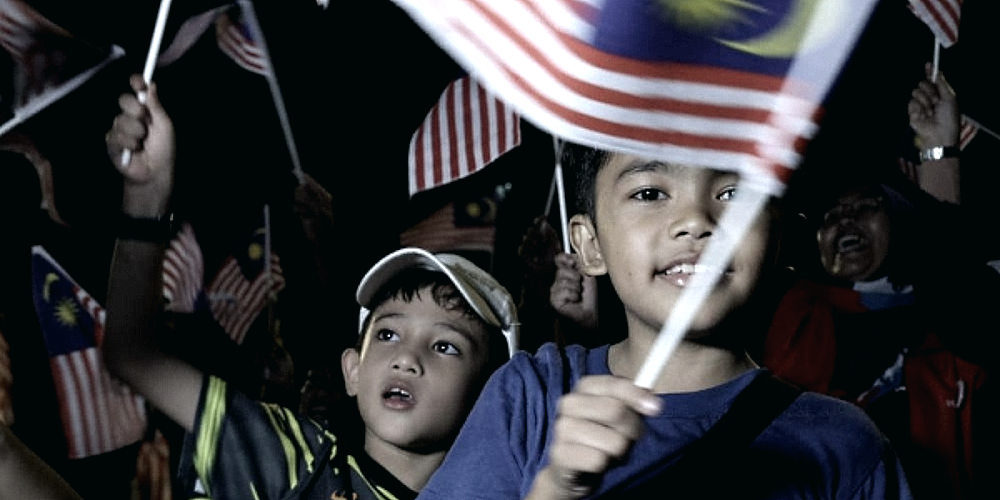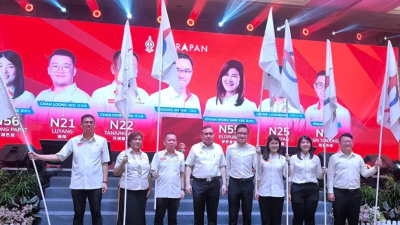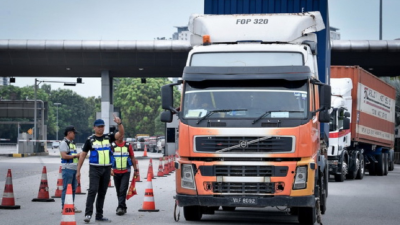The government is currently developing a Children’s Commission Bill.
The passing of a meaningful bill is vital to the well-being of children in Malaysia that is harmonised with the Preamble of our Child Act 2001.
What would make the bill meaningful?
A meaningful bill must give Malaysia a Children’s Commission that is fully responsible for multi-ministerial cooperation on policies and programmes regarding upholding and protecting all aspects of children’s rights.
It must have the authority to make policy changes and the power to require transgressions to be remedied within a specified time frame.
It must not just be limited to coordination without enforcement capacity.
Key recommendations on shaping Malaysia’s Children’s Commission are outlined below.
The Children’s Commission must be independent, answerable directly to Parliament as an institution that embodies the rights of the general public and most importantly, of anyone aged below 18 in Malaysia.
This direct mandate calls for the Commission to have the authority to advocate for policy changes by all enforcement agencies and local authorities, and the power to require meaningful remedies within a specified time-frame for the children impacted.
Furthermore, the Commission must be given “teeth” to monitor for sustainable and on-the-ground actions that uphold and protect children’s rights.
The government needs to ensure Malaysia’s full implementation of the Convention on the Rights of the Child and its Optional Protocols, and adopt an equitable, rights-based and gender-sensitive approach.
Good governance, regular evaluation, independence (including financial), transparency and constructive dialogue with stakeholders must characterise the Commission.
The Children’s Commission must be comprehensive and have a wide scope to cover all critical children-related areas, including the following (not an exhaustive list):
◾Guide and advise the establishment and strengthening of an inter-agency child protection case and data management system regarding the prevention of abuse, neglect, exploitation and all forms of violence against children.
◾Recommend specific rolling action plans to concerned ministries to end child poverty, especially among indigenous peoples, including those in Sabah and Sarawak, and among urban poor households.
◾Improve basic health service delivery, especially to marginalised and indigenous children and children with disabilities.
◾Focus policy and programme attention on the rights and needs of children with diverse disabilities, especially in inclusive education.
◾Work towards establishing clear policies and protocols to improve early childhood care, education and early intervention services: timeliness, quality, safety, affordability and accessibility.
◾Improve the status of marginalised children, including those who are migrants, refugees and stateless.
◾Promote the removal of all barriers to acquiring Malaysian citizenship being faced by children, including children adopted or fostered by Malaysian parents.
◾Improve services for children in conflict with the law, including children in prison and Henry Gurney facilities. Avoid/prevent the detention of any child, especially in prisons for adults and immigration centres for detention.
◾Persevere to end child marriage, and reduce teenage pregnancies and the abandonment or death of babies conceived due to rape or ignorance of sexual matters.
◾Recognise and remedy violations of children’s rights as they occur, by applying international good practices and human rights standards.

In performing its functions, the Children’s Commission must have the best interest of children as its key guiding principle. It should demonstrate respect for the diversity of children.
Children’s meaningful participation in the Commission is a fundamental right and a key to understanding their circumstances.
The Commission should ensure that children and their families participate in decision-making that affects them.
This includes facilitating their participation in defining, planning and evaluating services for children.
Malaysia needs a Commission that strives for child services that are accessible for households in remote and rural locations; community-based, coordinated and integrated; inclusive of gender, disability, culture and language; and responsive to individual needs.
The protection of children is a shared government-private sector-community-family responsibility.
For Malaysia’s children, we need a Child Commission whose key functions and powers include:
◾Advocate for children’s interests, rights and well-being.
◾Monitor and evaluate the implementation of government policies and practices for upholding and protecting children’s rights by reporting at every Parliament sitting for lawmakers and Parliament Select Committees to review Malaysia’s “report card” on children’s rights, and recommend improved enforcement practices across all ministries whose actions impact children’s well-being.
◾Have unrestricted access to all data regarding children from public and private entities, to provide Malaysia with a constantly updated analytical evidence base for policies, programmes, legislative provisions and amendments on any aspect of children’s rights issues.
◾Enable, advise on and track multi-sectoral and government inter-agency coordination and cooperation, to improve service impact on children’s well-being and eliminate negative consequences.
◾Child-proof all draft policies, plans and programmes of every ministry and government agency, to check possible impact on children’s well-being.
◾Be Malaysia’s best-informed child-relevant resource ready to advise on legislation, legislative provisions, administrative directives and procedures, codes of ethical conduct and professional practice.
◾Create and maintain a nationwide multi-level mechanism for the early detection of and rapid response to all forms of abuse and bullying of children at risk, particularly in institutions, community settings and online.
◾Hold regular consultations and maintain open channels of communication with members of the public on matters related to the well-being of children.
◾Make timely recommendations to Parliament and relevant ministers and ministries on services for children and changes required.
◾Monitor, investigate and/or carry out enquiries, and take prompt action on all instances of violation of child rights.
◾Assist in harmonising national- and state-level legislation, as well as policies, regulations, directives, procedures and programmes for implementation at all levels with the Convention on the Rights of the Child 1989, the Child Act 2001, and the Sexual Offences against Children Act 2017 (or any amendment or subsequent legislation regarding children which may come into force).
We recommend that the Children’s Commission be composed of nine appointed members with appropriate experience, knowledge and relating to children’s rights in Malaysia.
They should represent the diversity in Malaysia and include the indigenous peoples of Peninsular Malaysia, Sabah and Sarawak.
A minimum of half of the Commission’s membership should be civil society child rights advocates, activists with evidence-based contributions and women.
A children’s commissioner should be the chairperson, with eight others being children’s commissioners (not deputies); and with at least one children’s commissioner based in Sabah and one in Sarawak.
Commissioners should be appointed by the Yang di-Pertuan Agong from candidates recommended by a Parliamentary Select Committee which shall be established for this purpose and whose membership is composed of parliamentarians.
The effective functioning of the Children’s Commission will require a dedicated, accountable and competent team to support its work.
A meaningful annual budget for the Commission to execute its functions needs to be allocated.
There should be a specific provision for the Commission to table an annual report to Parliament.
The Commission’s decisions and recommendations are to be acted upon by each concerned ministry.
We would like the cabinet and government to know that we, child rights advocates and civil society entities, firmly support the initiative to establish for Malaysia an independent and effective Children’s Commission, to ensure that all children in Malaysia live their best lives possible.
As envisaged above, this would be the single most important legal commitment that any government has made for the protection of children in our nation since Merdeka.
We stand ready to support the drafting of the Bill for the Children’s Commission.
Click here for child rights advocates and civil society organisations:
ADVERTISEMENT
ADVERTISEMENT


































